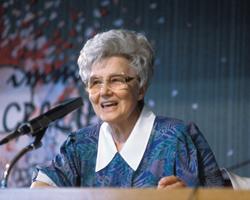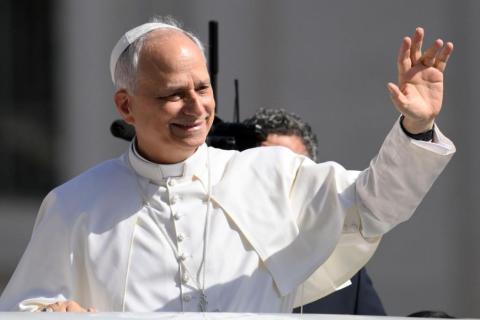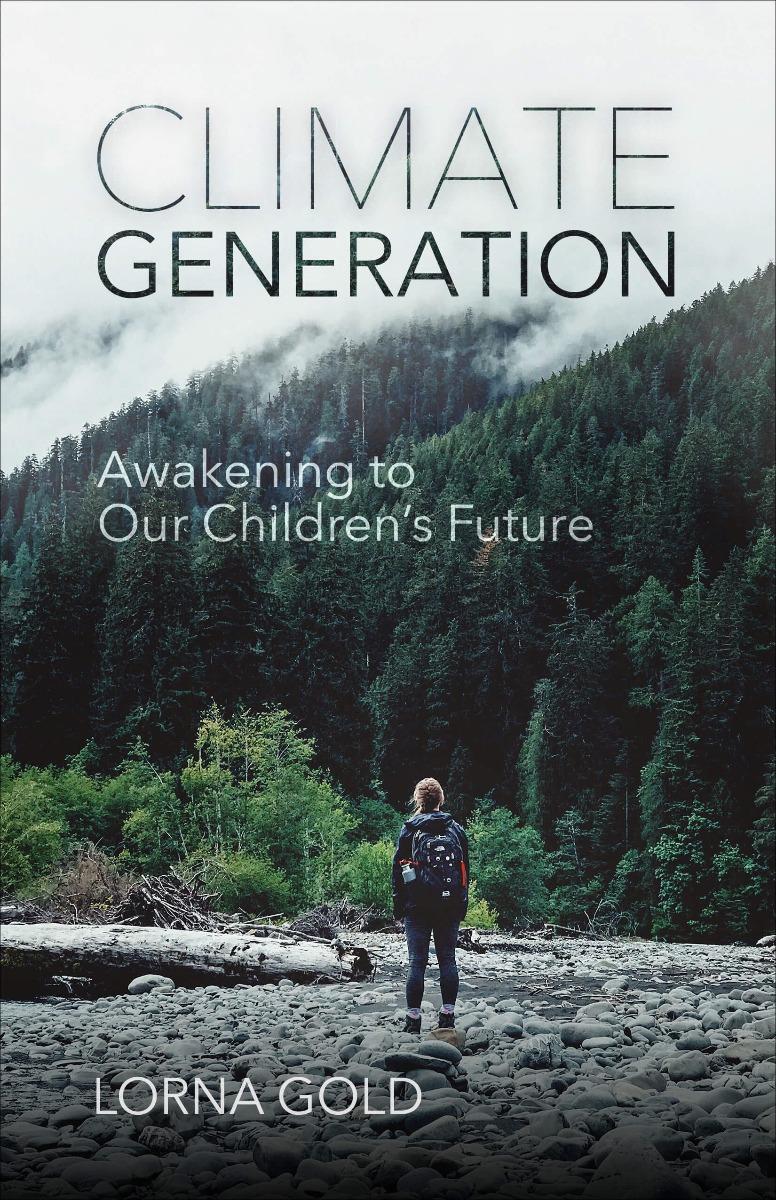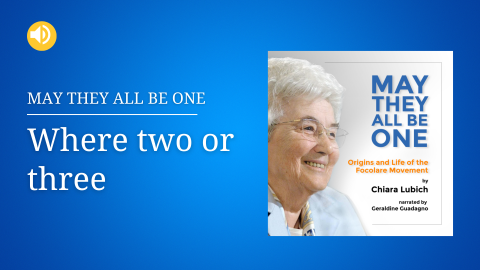Globalizing a culture of giving, the little towns find their place, and the outreach into the social sphere, too
Her story
Chiara Lubich was founder and first president of the Focolare Movement, and a prolific writer. We keep celebrating the centennial of her birth (1920) by covering key moments in her life.
Part 17: 1991–1993

Photo by CITTA’ NUOVA
In May 1991 Chiara Lubich visited the Focolare Movement in Brazil. In her handbag she had a copy of Pope John Paul II’s recently published encyclical Centesimus Annus. The nations of Latin America, many only recently freed from the oppression of military dictatorships, were crushed by a wide scale economic and social crisis with devastating unemployment.
When Chiara landed in Sao Paulo — an enormous city, the country’s economic engine — a ring of misery, hunger and abandonment surrounded the metropolis. Thousands of unemployed workers were living under the city’s bridges and viaducts.
The 15-mile stretch from the airport to Sao Paulo’s downtown area was lined with favelas (shantytowns) squeezed in between the highway and the Tiete River. Beyond the shacks made of cardboard, fabric, plastic and sheet metal, you could catch a glimpse of the city and its soaring skyscrapers.
In her diary, Chiara wrote of the “crown of thorns,” as the cardinal of Sao Paolo had described the belt of poverty and misery that encircled the city.
Seeking solutions… and finding them
In the 1960s, she had visited Recife, Brazil many times and had seen the poverty. Now in Sao Paulo the contrast between the wealthy and the poor was even sharper.
Chiara wanted to do something about it. She asked if there were people of the movement among the poor. She sought a solution.
“In 1900 Sao Paulo was a little village,” she wrote. “Now it’s not a jungle, but a forest of skyscrapers. Great wealth remains in the hands of the few. Why isn’t this power directed towards finding solutions to Brazil’s enormous problems? Love of neighbor is what is missing. Monetary interests and selfishness dominate. What’s missing is the ideal [of unity].”
In the movement’s little city of Araceli near Sao Paulo there were a few businesses, creative but small in scope and incapable of addressing all the needs of the residents. On May 24, 1991 Chiara shared enthusiastically a sentence from a book by Bruno Secondin called The New Protagonists.
“Some concrete accomplishments generated by the new movements demonstrate a third way. History has tended in that direction following the forces of communism and capitalism; it is a way of communion in freedom.”
The little towns of the Focolare in the world were proof of this. Referring to Centesimus Annus, Chiara foresaw “a little town governed by the principles lived by the early Christians: mutual love, a communion of goods, no one in need.”
Rethinking the business model
Cottage industries would not be enough — actual businesses were needed to produce profits that “under the thrust of the Ideal would be shared freely, for an adequate life of all the citizens and for the harmonious development of the structures of the little town and the businesses as well.
“This would make it possible in the little town to allow private property, freedom of initiative, the right of association (cooperatives, etc.), all crowned by the communion of goods. A little town like this in Brazil — where the divide between rich and poor is a deep social wound — could be a beacon of hope.”
On May 29, the auditorium of the little town was crowded. Word had spread: “Chiara is waiting for us at Araceli. Something has come up that could transform Brazil, the world, the economy, the life of the poor.”
Businesspeople arriving from different cities were seated in the front row. Chiara arrived and narrated her experience — the shock she experienced upon arrival, the urgent need to find solutions, the ideas that had emerged. “God is at work.”
She was speaking to the citizens of Brazil, but beyond, on the horizon, she saw the world.
The EoC is born
The fundamental nucleus of the Economy of Communion in Freedom (EoC) can be summarized in three concepts: there was to be an industrial park with productive businesses located close to the movement’s little town; economic resources must be entrusted to competent individuals; the profits must be shared: one part for persons in need, one part to be invested in the industry itself to ensure its growth, one part for the formation of a new generation for a new society.
Chiara returned to Italy eager to advance this project. In the June international conference call, a vehicle Chiara used to form and inform the members of the movement throughout the world, she launched the idea of expanding what had happened in Brazil to other nations and asked that special preference be given to those most in need. By the end of 1991, 26 businesses were part of the EoC project. One year later there were 60.
In April 1993, a large piece of property two miles from Araceli was purchased. In 1994 Espri, a privately held company established to manage the future industrial park, was born with contributions from 2,000 shareholders. Its name had already been decided: Spartaco Industrial Park, named after one of the first married focolarini.
Similar experiences were initiated in other little towns throughout the world. Chiara took every opportunity to speak or write about, answer questions on and explain the EoC system. She encouraged students to study and write theses on the topic. In the April 1992 conference call, she invited everyone to adopt and expand a “culture of giving.”
A little town springs up in Kenya
In May of that same year, she visited Kenya where a Focolare little town was coming to life, with the vision to develop a laboratory for the culture of unity on the African continent. Chiara pondered what might be the specific calling of the Focolare in these nations, and in her keynote address she made it clear that it was evangelization.
A center for intercultural life was created, “much hoped for by the local ecclesiastical authorities and called for by the diverse cultures of those who inhabit this continent.”
Spirituality flooding into various fields
Upon her return to Italy, Chiara suffered major health setbacks that prevented her from working and dedicating herself to the movement. Her situation improved in the spring of 1994, and in 1996 Chiara founded the Movement for Unity in Politics as a means to bring together politicians from different parties to work together for the common good.
In the following years, so-called “inundations” emerged as expressions of the encounter between the charism of unity and contemporary culture, always emphasizing dialogue. The inundations included the fields of architecture, art, communications, law, economy, education, ecology, medicine, politics, psychology, sociology and sports.
Preferring the marginalized
“In this period, here is a new call to put the poor and the least in the first place of our heart. And how then will we be able to do this? First of all, by looking with a special love at those among us who can be called the least and trying to cover every necessity they might have with a free but intense communion of goods on a global scale.”
(Chiara Lubich, from a conference call on June 27, 1991)












